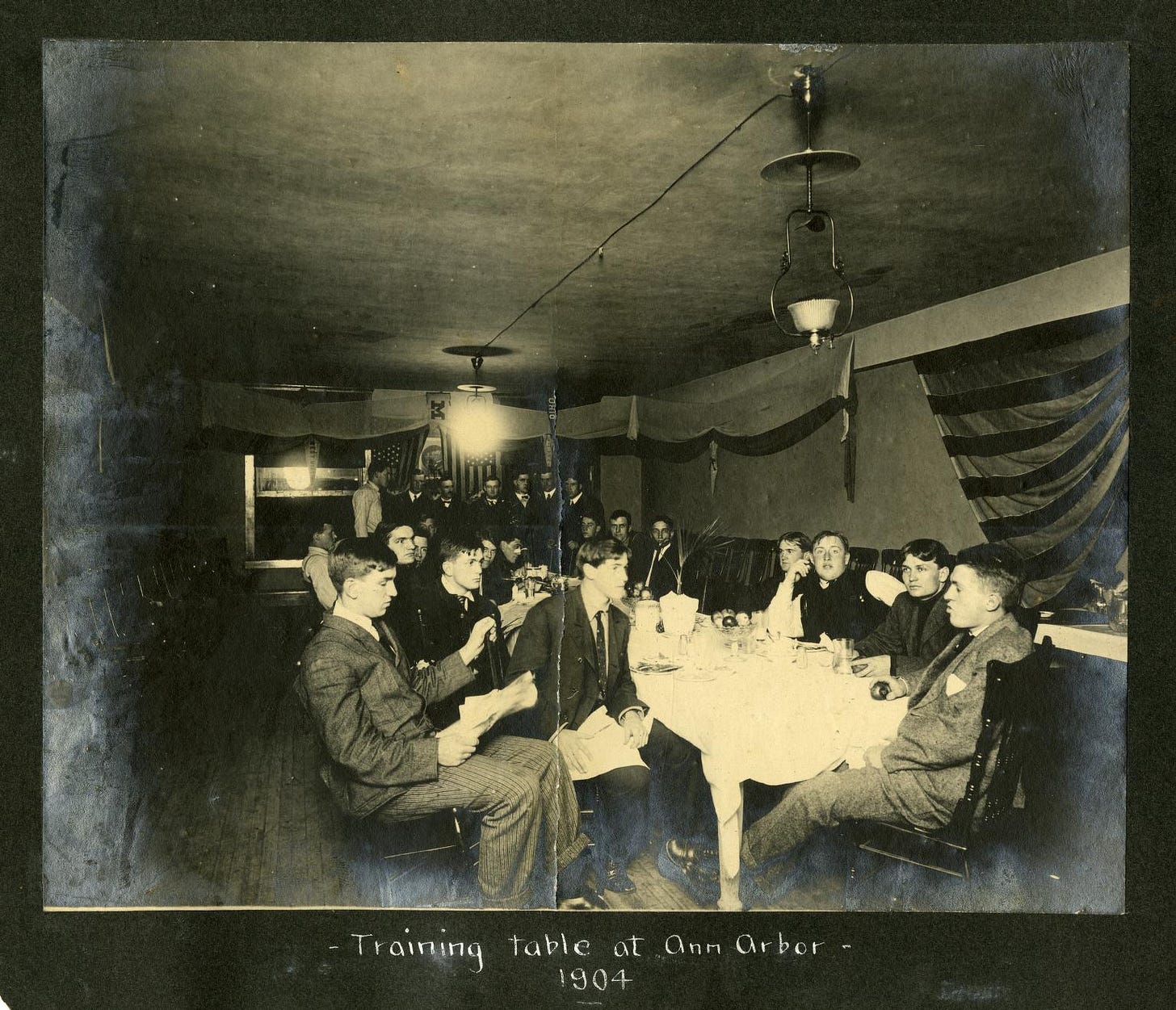Today's Tidbit... Heisman’s Training Table
John Heisman is among the game’s great coaches, but his views on football training and nutrition were shaped by the time in which he lived, which means they were archaic. Heisman was in the last of his three years coaching Penn -the sixth school he coached- when he published Principles of Football in 1922, which details his view on coaching the game.
Heisman covers various topics in his book, including his thoughts on nutrition and the training table. Like others before him, Heisman specific views on sports nutrition were largely pre-scientific, based on general observation or wives’ tales. After all, it was only ten years earlier that nutritionists discovered vitamins.

Heisman outlined twenty-one rules for football players and coaches to follow covering nutrition and water consumption by football players. The following list includes some rules considered appropriate today and others that are simply bizarre. (Some details are omitted for brevity's sake.)
Among those that seem reasonable today are:
A football player should not use tobacco in any form when the season is on.
He should not partake of spirituous or alcoholic drinks of any kind.
Eat sparingly of pastry and rich desserts. No pie or cake or candy, no syrup or molasses. Occasionally a plain dessert like bread, rice, or tapioca pudding will pass muster.
A player should do without coffee altogether during the season. Tea is not so bad….
…No fried meat of any kind should be eaten by an athlete.
Other rules fell into the oddball or dangerous category:
Nearly all vegetables get the stamp of approval except cabbage, which should not be eaten in any form.
All bread should be stale or toasted; no hot bread of any kind.
Most kinds of fruit are all right. Bananas that are the least bit green should be left alone . …All kinds of nuts are bad.
Food for a football player should never be highly seasoned and all condiments must be pretty generally side-stepped. I refer particularly to pepper, vinegar, mustard, catsup, horseradish and the like.
It is unclear what Heisman had against cabbage, fresh bread, nuts, or condiments, but others held similar views.
Similarly, Heisman's views on water discipline were not unusual for the time. They were widely held until the 1960s when the research that led to the development of Gatorade changed many minds. Heisman argued for limiting players' access to water, particularly after the first week of practice.
In the early days of the fall campaign, the players perspire freely and can hardly get enough water to drink. For the first week or so they may be permitted to have almost as much as they want, but after that their allowance should be cut down while playing, for it is impossible to do brilliant athletic work with a stomach full of water. Accordingly, orders should be given that the water bucket is not to be brought onto the field until called for by the Coach, who then sees to it that no man gets more than half of a small dipperful at a time. As soon as practice is over a player can drink as much as he wants.

Of course, no one argues for the style of water discipline that Heisman advocated, but while he was a visionary in some aspects of football, nutrition and hydration were not among them.
Football Archaeology is reader-supported. Click here to buy one of my books or otherwise support the site.

